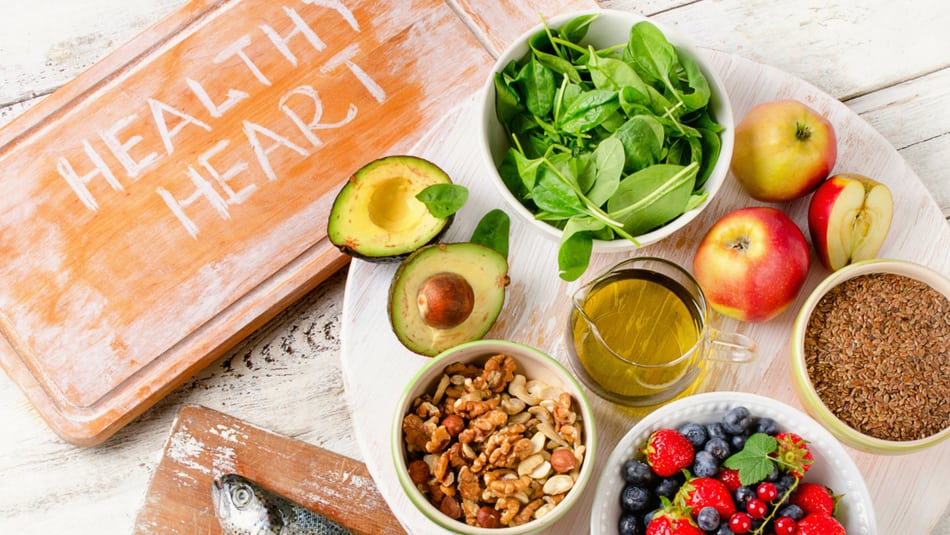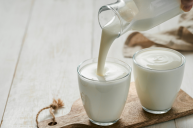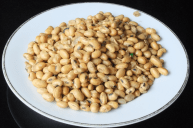It seems like there's a lot of confusing advice out there on what you should or shouldn't eat to be heart healthy. There are trendy foods and diets that some people swear are supposed to keep your ticker in top shape, but how do you know what really works? The American College of Cardiology studied some of the recent trends in popular foods and dietary patterns to determine was really is part of a heart health diet and detailed their results in the Journal of the American College of Cardiology.
Specifically, the team of doctors looked at dairy products, added sugars, beans, coffee, tea, alcoholic beverages, energy drinks, mushrooms, fermented foods, omega-3-fatty acids, and vitamin B12. Their results put the foods in three different groupings: recommended (evidence of benefit), neutral (no evidence of either benefit or harm), limit or avoid (evidence of harm).
Here's the list of foods you should eat, foods that are okay in moderation, and foods you should avoid for a heart-healthy diet.
Recommended
1.Legumes
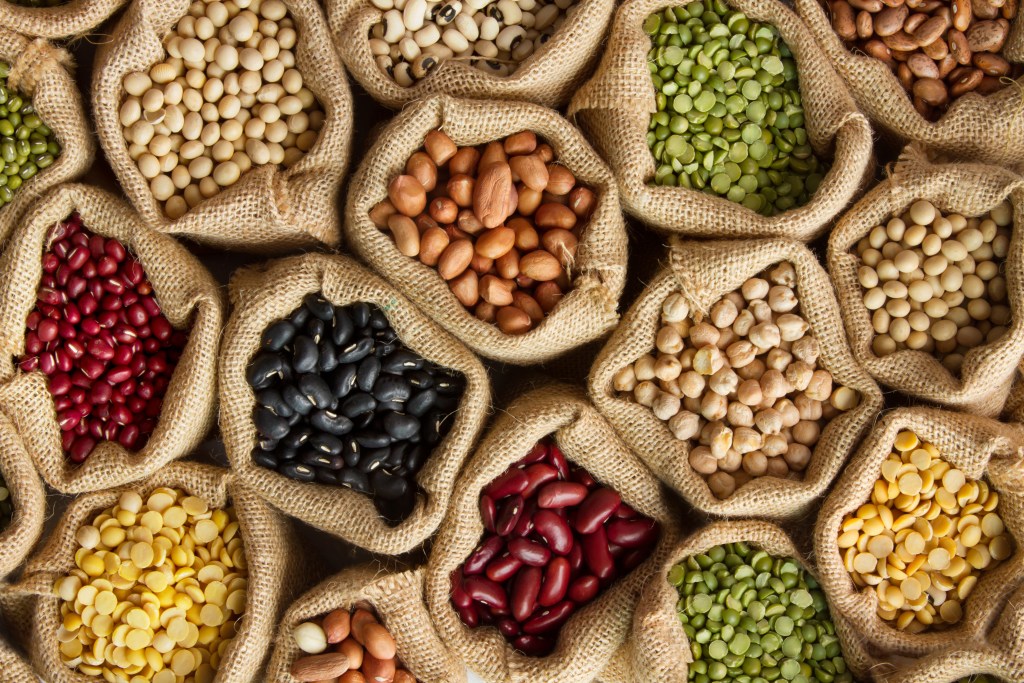
If you're looking for a real nutrient-rich food for your heart health diet, legumes, or beans, is it. Packed with protein, fiber, folate, iron, magnesium, potassium, and a whole swath of vitamins, they help lower bad cholesterol and keep blood sugar levels steady. Eating beans can also lower your blood pressure and help you keep a healthy weight because they make you feel fuller. Plus there's such a wide variety of legumes to make almost any recipe you can think of: Black beans, lentils, chickpeas, pinto beans, adzuki beans, anasazi beans, black-eyed peas, and yes, peanuts, are all versatile and tasty additions to any meal.
2. Coffee
One day coffee is great for you, the next it's terrible. The truth is, like everything, more nuanced. Drinking coffee does show heart health benefits like reducing your risk of diabetes and stroke through the antioxidants it contains. It also seems to reduce the risk of cardiovascular disease, but here's the catch: Coffee is good if it's coffee and not a coffee-flavored drink. The more sugar, cream, or flavoring you add, the more the benefit is canceled out.
3. Tea
Tea contains a high level of antioxidants, which makes it good for your heart. It can improve artery health, lower cholesterol levels, and improve the function of your blood vessels. Like coffee though, you only get the benefit if you're not adding a ton of sugar to your tea.
4. Mushrooms
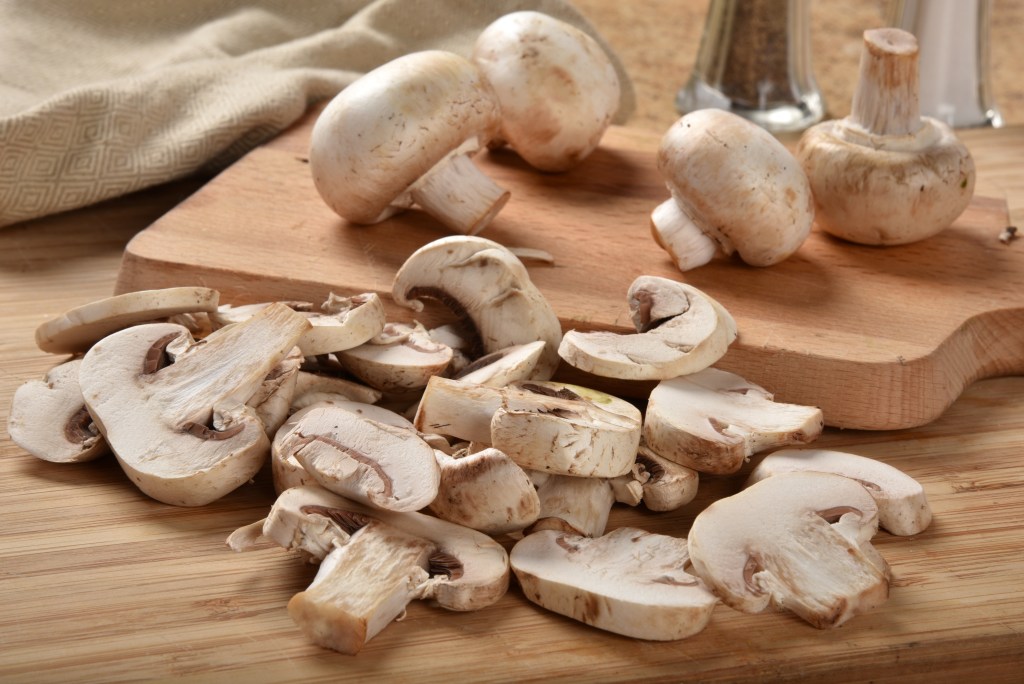
Mushrooms are another genuine power food and can play a strong role in any heart health diet. Cardiologists found that they have anti-inflammatory compounds, antioxidants, and vitamin D (in fact, they're the only vegetable to contain vitamin D). They reduce cholesterol and lower blood pressure, plus they have been shown to reduce hardening of the arteries. And they're easy to add to dishes, so you get a nutrient-packed kick in almost anything.
5. Omega-3 Fatty Acids
Studies clearly show the benefit of consuming omega-3 fatty acids, though it's less clear what the best source of this important nutrient is. Fish is probably the most popular healthy food source, but it's certainly not the only one. Check out walnuts and green leafy plants, as well as canola and flaxseed oil if you're not a fan of fish or if you're worried about the mercury found in some fish.
Beneficial, But...
1. Vitamin B12 Supplement
You need vitamin B12 to keep your brain functioning well and to make red blood cells. Most people get B12 from eating animal products, including fish, meat, poultry, eggs, and dairy products. Vitamin B12 is critical for your health, but unless you are at risk for some kind of deficiency, you don't need to take a supplement because there's no benefit to taking extra B12.
2.Alcoholic Beverages
As far as your heart goes, a little bit of alcohol has shown some benefit, including increasing high-density lipoproteins, improving insulin sensitivity, and reducing inflammation. However, there's an important caveat here — the amount of alcohol that has a benefit is roughly a drink a day (men can safely consume a bit more than women). Any more than that and you erase the potential benefits, especially for women, who have an increased risk of breast cancer from even moderate amounts of alcohol consumption.
Neutral
1. Fermented Foods
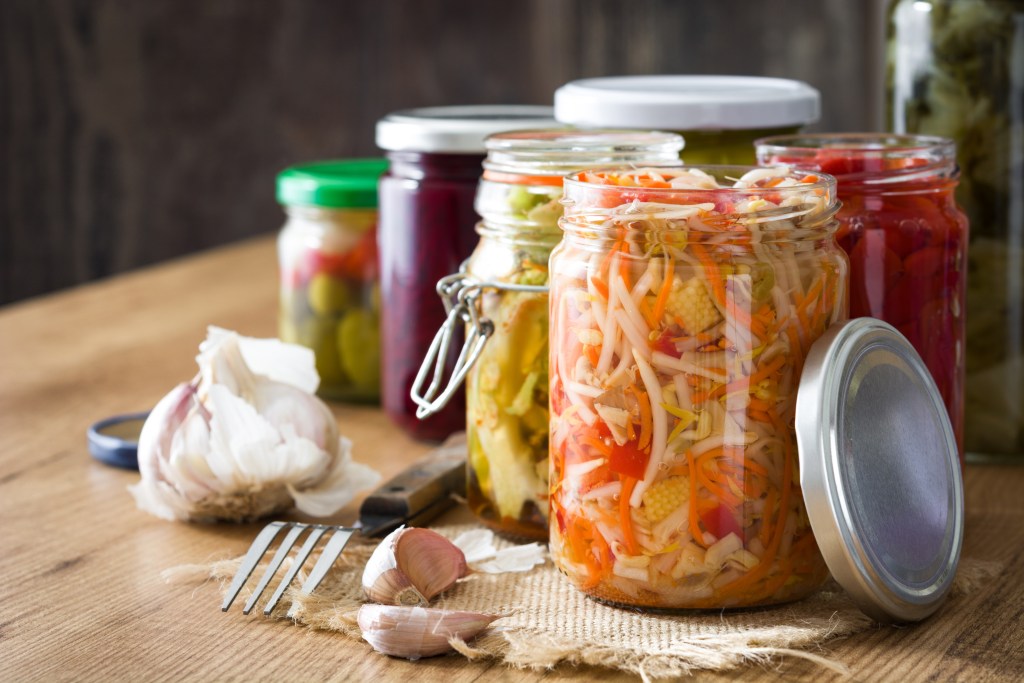
Fermented foods like sauerkraut are great for your gut, but it looks like there might be some evidence that how healthy your digestive system affects how healthy your heart is. These foods are definitely not bad for you, so if you like them, you should feel great about making them part of your healthy lifestyle.
2. Dairy
Dairy is another thing that goes back and forth on the healthy/not healthy list. We've always been told that the saturated fat content in dairy is bad for our hearts and arteries, but it turns out that's not necessarily the case. There is also evidence that full-fat dairy makes us feel more satisfied, so we eat less, which is better for our overall health. Call this one an "everything in moderation" food — it's not bad for you unless you overindulge.
Limit or Avoid
1. Energy Drinks
The advice from doctors on whether or not energy drinks are good for you tend to go something like this: Just, no. They increase your blood pressure (so, especially no if you already have high blood pressure) and your risk of arrhythmia, plus the amount of sugar is terrible for you. The American Academy of Pediatrics recommends no energy drinks at all for children or teens, especially.
2. Added Sugar
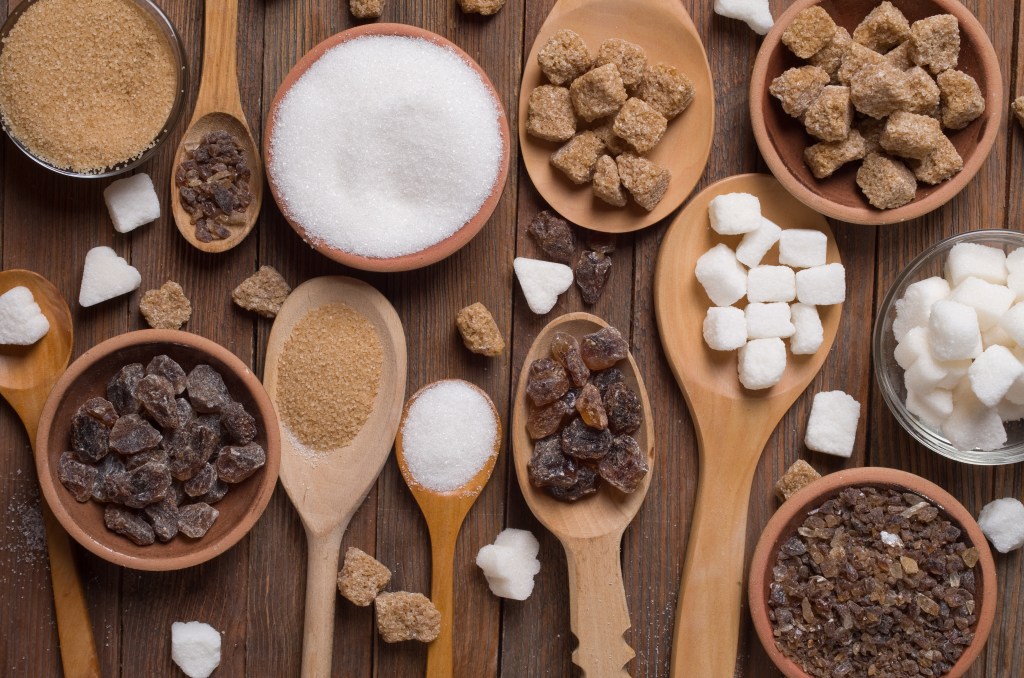
Added sugar is far worse for you than fat, which is why you should be mindful of the amount of processed food, fast food, and sugary drinks you consume. The recommended limit for the amount of sugar you should have every day is 38 grams or nine teaspoons for men and 25 grams or six teaspoons for women. A Starbucks grande mocha frappuccino has 58 grams of sugar and that's without the whipped cream. A regular grande mocha (still without whipped cream) has 34 grams of sugar. Natural sugars like molasses, coconut sugar, and agave are still sugar — they might be better for you, but for good heart health, it's better to keep it under the limit.
How to Get More of These Foods in Your Heart Health Diet
The American Heart Association has good, science-based advice on ways to improve your healthy eating, along with some great recipes if you need ideas to get you started. Some of their tips include taking control of portions (you don't always need to eat everything you're served), read food labels so you know what's really in a product, prepare and eat more meals at home where you have control over ingredients, and replace bad fats with healthy fats.
Your goal should be to build a healthy diet without "dieting." Think of it as an eating plan instead of a diet. You don't have to go without treats or special meals, just be aware of what and how much you consume and make good choices that include heart-healthy foods in the long run.
